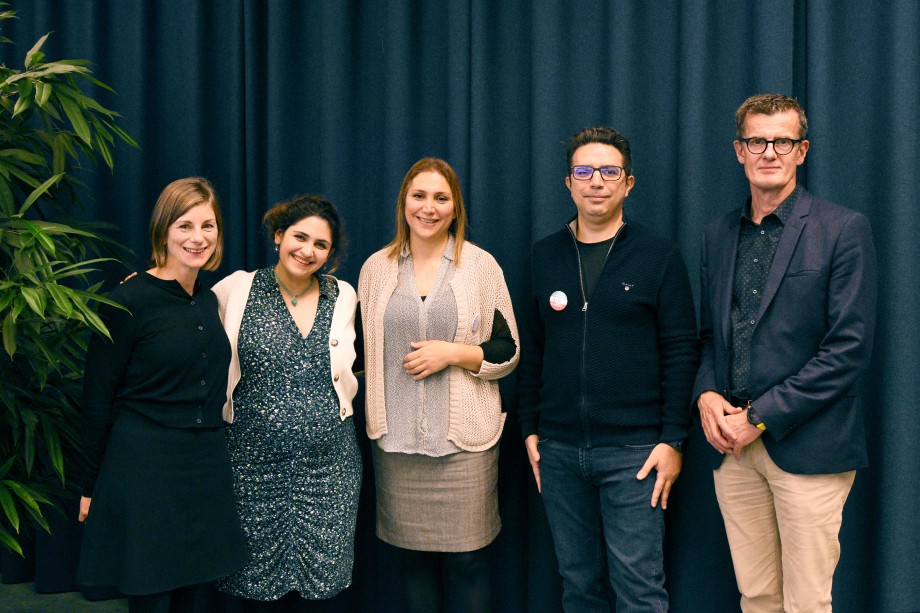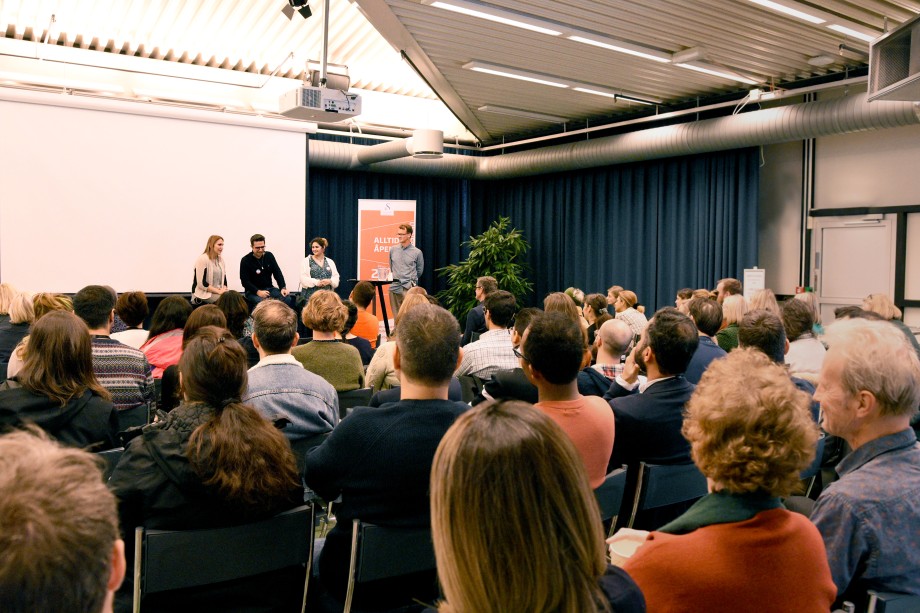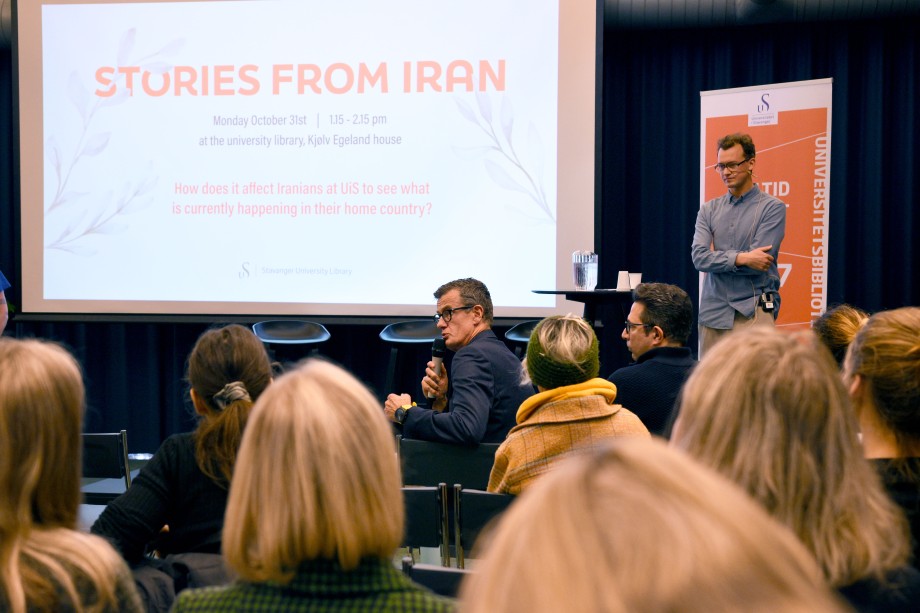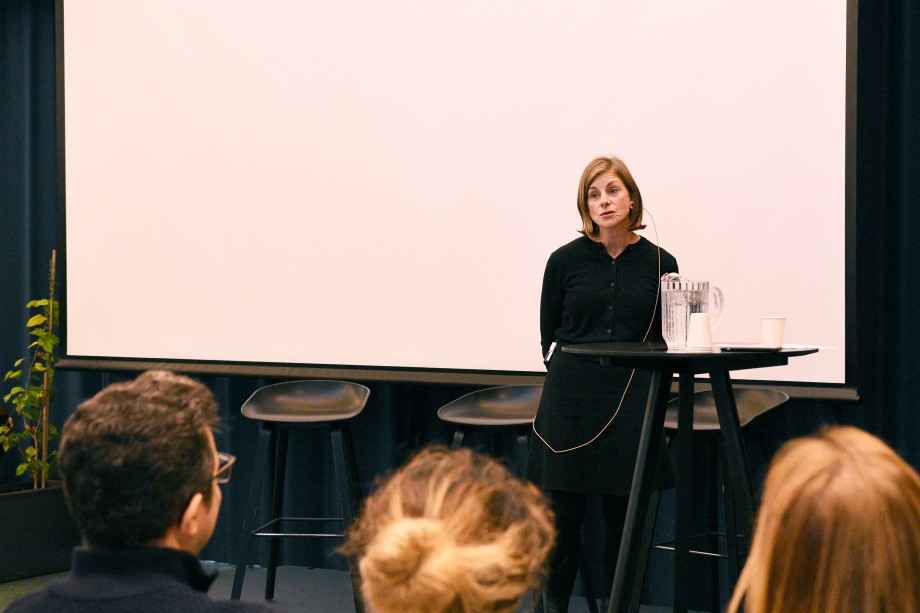Iranian students and staff talking about the current situation in Iran and how it affects them personally, made a profound impression on UiS rector Klaus Mohn under a recent meeting at the University Library.

There is a growing rise in protests in their homeland against the clerical regime. Over 200 people have been killed and many have been arrested in the protests that have taken place in many Iranian cities following the death of 22-year-old Jina Mahsa Amini while in the custody of the morality police. She was arrested for failing to cover her hair properly and refusing to comply with the demands to wear a proper hijab.
It started with protests against the demand to wear the hijab, which is enshrined in Iran's penal code, but now the protestors also demand democratic rights and regime change in the country.
Iranian students and employees at the UiS have also been affected by the situation in Iran and are following the drama from Norway.
At the meeting at the University Library Iranians Naeem, Mahdieh and Parisa shared their experiences and expressed their feelings about what is happening in Iran right now.
Around 70 members of the public attended. Many of them were Iranians. Specialist Librarian David Sviland led the talks and asked the participants questions.
Professor Marianne Hafnor Bøe has studied in Iran and is conducting research on Islam and women's rights and the fight for such rights. She was on hand to provide an update on the protest movement that is constantly growing and is now in its seventh week.
Minor offences, major consequences
One student who has personally experienced the injunction to wear a hijab and the Iranian morality police is Parisa, a former student at the UiS. When she was 16, she was forced to escape from the morality police when they were about to arrest her. Afterwards she was constantly worried about meeting them and took long detours on her way to and from school.
Naeem, who is employed at the Faculty of Science and Technology at the UiS, talked about growing up and how the Iranian authorities control the lives of those who live there; about the fear of the morality police and the overly severe penalties for trifles such as not wearing the hijab properly or wearing a colourful T-shirt.
Mahdieh, who is also employed at the Faculty of Science and Technology, talked about her time studying in Tehran. She learned that it may seem like many things are open and straightforward at university, but that there are very harsh consequences if you cross the line. After reading some political poems, she was expelled from several organisations and lived for a long time in uncertainty about whether she would also be expelled from the university. The fear of losing her education and the opportunity to create her own future remains with her.
All three have left their homeland. Parisa left when she was 19.
"I just wanted to go somewhere where I could be free. The lack of freedom meant that I simply had to get out of the country," said Parisa, who initially moved to Italy and then to Norway.

Rector Mohn condemns the Iranian regime
“I am upset by your stories and I thank you for sharing them with us," Klaus Mohn said when it was his turn to speak.
"Meeting you here in the University Library gives me the opportunity to express my sympathy for what you are going through. I am impressed by the brave women who started the protests and now by all those who are fighting for their rights in Iran. I and the UiS wholeheartedly support the resistance shown by the Iranian people and I condemn the regime and its violent handling of the protests," Mohn pointed out.
The University of Stavanger has around 60 employees and 100 students who are registered as having Iranian citizenship. Several of them say that they are experiencing difficulties, are having trouble sleeping and are very worried about their families and friends.
They are also afraid to come forward and talk about the situation because they know that friends of the regime are able to keep an eye on the Iranian community in Norway and help the regime to control any opposition figures abroad as well.
Nevertheless, there were many people in the audience who strongly criticised the Iranian regime and spoke in an emotional way about their experiences.

Want to communicate what is happening in their home country
"We wake up in the morning. We share the news. We do everything we can to inform others about what is happening. We are trying to be the voices of those who are involved in the protests and who are being silenced by the Iranian authorities," explained Mahdieh, who constantly thinks about her family and those who are fighting in her homeland.
The regime has shut down the Internet in much of the country.
"The women in Iran who are standing up for their rights have been joined by the men and now there is a broad movement. I'm worried about our parents, relatives and friends. We are all worried about what will happen in the future and sincerely hope that we will see changes," said Mahdieh.
Having now expressed her views at the University Library, Mahdieh will not dare to return home in the near future. She is distressed and motivated to support the protests in her home country.
"I owe it to the women of Iran to come forward and speak out. I owe it to myself to come forward," said Mahdieh when she was asked if attending the meeting at the University Library could have consequences.
Unstoppable protest movement
Marianne Hafnor Bøe is not surprised that the protests in Iran are being led by women.
"During the last few decades we have seen different ways of protesting in Iran. The largest demonstrations occurred in 2009. We must remember that 50-60 per cent of women in Iran are university graduates. They have a lot of expertise and know how to stand up for their rights," explained Hafnor Bøe.
The professor pointed out that this protest movement differs from previous protests. The demonstrations have been going on for almost two months. Previous protests have been put down much faster by the Iranian regime.
"It is surprising that the protests are still taking place. We know that the regime is very brutal when cracking down on the opposition. In this protest movement, everyone – women, men and different classes and different age groups – are all participating. Schoolchildren have been demonstrating. They are participating in the north, south, east and west," said Hafnor Bøe, who believes the protest movement is larger and more widespread than previously seen.
"It's difficult to say which way this will go, but it’s possible that it will continue. At the same time we have heard that the government has said that enough is enough. There's a lot of tension right now. The next few days will be a turning point for what will happen next,” said Hafnor Bøe.

Helps to be seen
"When you are faced with terrible news each day, when you’re afraid of what is happening in your home country and are worried about your own chances of meeting your family and friends again, then we need to be heard. If we are heard and feel that the protest movement in Iran is being noticed and has the support of the UiS, then it helps a lot," said Mahdieh.
Professor Mohn was moved by the meeting at the library and he promised that the UiS had not finished expressing its support and sympathy for both the Iranian employees and students at the UiS and for the protest movement itself in Iran.
Professor Mohn believes that the university must always stand up for freedom of expression, respect and cooperation. Earlier this autumn the UiS published an article entitled Questions and Answers about the situation in Iran in which Marianne Hafnor Bøe explains what the protests are all about.
Hafnor Bøe was also the keynote speaker at the Annual Celebrations, the day when the UiS celebrates the university’s status and creates its doctors. In her speech she gave an insight into the role of women in the protest movement in Iran.
Much of the ceremony was devoted to the situation in Iran, with Klaus Mohn condemning the Iranian regime in his speech.
Text: Karen Anne Okstad, Department of communications and public affairs
Photo: Tonje Elise Karlsen, University Library